Gas War: U.S. House Suggests Ending California Emissions Authority, White House Says Nope

On Tuesday, the White House voiced its opposition to a Republican bill scheduled to be voted on by the U.S. House of Representatives that would prevent California from receiving federal waivers to set standards limiting the sale of gasoline-driven automobiles.
With the issue of what people will be allowed to drive in the future becoming yet another hot-button political issue, there’s little chance of the bill making it through Congress. Democrats have made widespread electrification a major platform and they’re currently the dominant party in the Senate, likely meaning the “ The Revoking Engine and Vehicle (REV) Requirements Act” would stall there.
However, the proposal is not incorrect in asserting that California's Clean Air Act waiver gives it a large amount of influence over national vehicle policies. Republican Congressman Doug LaMalfa (CA-01) pointed this out while introducing the bill.
"California is abusing their waiver authority and its status as the largest market in the United States to force this change on all Americans. We have a free market; therefore if Americans truly wanted to make the switch to electric vehicles, then they would buy them — no government interference necessary. The truth is that electric vehicles aren't a reliable option for everyone, nor are they affordable. Just a few days after the California Air Resource Board's mandate came out, Governor Newsom had to publicly beg electric vehicle owners not to charge their cars due to concerns of the power grid and blackouts. This winter, residents in the Sierra Nevada mountains lost power for days due to heavy snow storms. People with electric vehicles couldn't charge them to evacuate or heat their homes. Those who want an electric vehicle and can afford it have every right to purchase one. People shouldn't be compelled to purchase them. The bottom line is that the government has no right to mandate what kind of car you drive." said Congressman LaMalfa.
Due largely to possessing the ability to self-regulate, California is known for having some of the strictest emission rules in the country. However, the region is also highly influential and has over a dozen other supportive states (New York, Massachusetts, Vermont, Maine, Pennsylvania, Connecticut, Rhode Island, Washington, Oregon, New Jersey, Maryland, Delaware, Colorado, Minnesota, Nevada, Virginia, and New Mexico) claiming to adhere to its benchmarks for vehicle emissions in lieu of federal guidelines.
Though exactly how this works is a little confusing, as those locales don’t enjoy the same regulatory waiver provided by the Environmental Protection Agency (EPA). These also aren’t issues that are being voted on by the public and instead tend to be declarations made by state leadership that feel a political kinship to California.
While this has created an incredibly hazy regulatory environment at both the federal and state level under the Trump administration, Biden’s doesn’t seem to care due to being in broad alignment with the policies pushed by the California Air Resources Board (CARB). Furthermore, the EPA cannot legally issue a formal ban on combustion vehicles.
Arguments could be made that today’s federal standards represent de facto bans by how heavily they incentivize electric vehicles while punishing automakers for building modestly sized, economical models that burn gasoline. But it still doesn’t qualify as an outright ban, even if the White House has set goals for what portion of the market should be electrified and vowed to make all government vehicles EVs in the coming years. The point is that the Biden administration presumably doesn’t want to get in California’s way when it’s taking actions it’s prohibited from engaging in.
Under Trump, the EPA sought to end California’s ability to self-regulate after market analysts suggested Californian policy would split the U.S. market by forcing automakers to comply with regions adhering to more stringent emission rules and state-backed vehicle bans. At the time, the White House claimed this would result in Americans having limited choices, being forced into more-expensive automobiles, and ultimately advantage China as the world’s largest battery producer. However, the legal hurdles confronted by the Trump administration were vast and Biden undid any headway it had made by subsequent executive order.
In May, CARB asked the EPA to approve its plan to require all new vehicles sold in the state by 2035 to be either electric or plug-in electric hybrids, setting the stage to ban automobiles using fossil fuels. Automotive News reported that the proposed bill would strip the EPA of authority to grant that waiver, adding that California has already received waivers from the EPA to set its own emissions limits for heavy trucks and other vehicles.
From Automotive News:
The White House noted Congress gave California authority to regulate emissions from vehicles more than 50 years ago, but did not issue a veto threat. The Biden administration has repeatedly refused to endorse setting a date to phase out the sale of internal combustion engine cars and trucks.
Former President Donald Trump, who is seeking the 2024 Republican presidential nomination, has repeatedly accused the Biden administration of seeking to force an end to internal combustion vehicles.
Under an EPA proposal to cut vehicle emissions, automakers are forecast to produce 60 percent EVs by 2030 and 67 percent by 2032 to meet requirements, compared with 5.8 percent of U.S. vehicles sold in 2022 that were EVs.
California's zero-emission rules [claims it] will cut by 25 percent smog-causing pollution from light-duty vehicles by 2037.
The rules mandate that 35 percent of the new cars sold be plug-in hybrid electric (PHEV), EVs or hydrogen fuel cell by 2026. That proportion will rise to 68 percent by 2030 and 100 [percent] by 2035.
A total of 17 states have agreed to adopt California's EV rules.
CARB's regulation would allow automakers to sell up to 20 percent PHEVs by 2035 with a minimum 50-mile all-electric range.
Leadership understands that California is a keystone state in terms of emission policy and sells enough vehicles to make it borderline impossible for the industry to rationalize building a separate product line. With a cadre of other states claiming to be on board with CARB standards, it almost doesn’t matter what the federal government’s standards are. The industry will have to comply with California’s emissions laws if it hopes to sell within the United States, with the federal government still capable of funding the shift by adding new corporate incentives and indefinitely prolonging an EV tax credit scheme that was originally supposed to expire.
Ultimately, it doesn’t really matter if the proposed bill makes it through the House and Senate. Biden will almost assuredly veto it so that The Golden State can continue doing some of the legwork the federal government is legally barred from doing. It certainly calls into question exactly where the boundaries of regulatory law exist. But it’s an effective tactic and helps guarantee the desired policies are enacted nationally, regardless of which party happens to be in power at the federal level.
Though the above hardly addresses the issue in a comprehensive manner. The fact remains that there’s an affordability issue with modern vehicles that’s been even tougher for EVs to cope with. Electric cars also haven’t yet reached parity with gasoline or diesel vehicles in terms of uptime and there are lingering questions about serviceability as it pertains to DIY maintenance. We also have a large contingent of consumers that remain broadly unwilling to purchase any nontraditional powertrains until they’re absolutely positive it’s better than what they currently own.
That’s not to suggest battery and hybrid-powered vehicles don’t have benefits. At-home charging is extremely convenient for those who can adapt it to their lifestyle and the instantaneous torque of electric motors remains thrilling. But they probably won’t work for everyone and former claims that EVs were ecologically superior are starting to fall flat as the world learns more about cobalt or lithium mining and realizes that the energy for these vehicles still has to be sourced from somewhere that’s still emitting pollution.
[Image: ZikG/Shutterstock]
Become a TTAC insider. Get the latest news, features, TTAC takes, and everything else that gets to the truth about cars first by subscribing to our newsletter.

A staunch consumer advocate tracking industry trends and regulation. Before joining TTAC, Matt spent a decade working for marketing and research firms based in NYC. Clients included several of the world’s largest automakers, global tire brands, and aftermarket part suppliers. Dissatisfied with the corporate world and resentful of having to wear suits everyday, he pivoted to writing about cars. Since then, that man has become an ardent supporter of the right-to-repair movement, been interviewed on the auto industry by national radio broadcasts, driven more rental cars than anyone ever should, participated in amateur rallying events, and received the requisite minimum training as sanctioned by the SCCA. Handy with a wrench, Matt grew up surrounded by Detroit auto workers and managed to get a pizza delivery job before he was legally eligible. He later found himself driving box trucks through Manhattan, guaranteeing future sympathy for actual truckers. He continues to conduct research pertaining to the automotive sector as an independent contractor and has since moved back to his native Michigan, closer to where the cars are born. A contrarian, Matt claims to prefer understeer — stating that front and all-wheel drive vehicles cater best to his driving style.
More by Matt Posky
Latest Car Reviews
Read moreLatest Product Reviews
Read moreRecent Comments
- Spectator Lawfare in action, let’s see where this goes.
- Zerocred I highly recommend a Mini Cooper. They are fun to drive, very reliable, get great gas mileage, and everyone likes the way they look.Just as an aside I have one that I’d be willing to part with just as soon as I get the engine back in after its annual rebuild.
- NJRide Any new Infinitis in these plans? I feel like they might as well replace the QX50 with a Murano upgrade
- CaddyDaddy Start with a good vehicle (avoid anything FCA / European and most GM, they are all Junk). Buy from a private party which allows you to know the former owner. Have the vehicle checked out by a reputable mechanic. Go into the situation with the upper hand of the trade in value of the car. Have the ability to pay on the spot or at you bank immediately with cash or ability to draw on a loan. Millions of cars are out there, the one you are looking at is not a limited commodity. Dealers are a government protected monopoly that only add an unnecessary cost to those too intellectually lazy to do research for a good used car.
- Redapple2 I gave up on Honda. My 09 Accord Vs my 03. The 09s- V 6 had a slight shudder when deactivating cylinders. And the 09 did not have the 03 's electro luminescent gages. And the 09 had the most uncomfortable seats. My brother bought his 3rd and last Honda CRV. Brutal seats after 25 minutes. NOW, We are forever Toyota, Lexus, Subaru people now despite HAVING ACCESS TO gm EMPLOYEE DISCOUNT. Despite having access to the gm employee discount. Man, that is a massive statement. Wow that s bad - Under no circumstances will I have that govna crap.



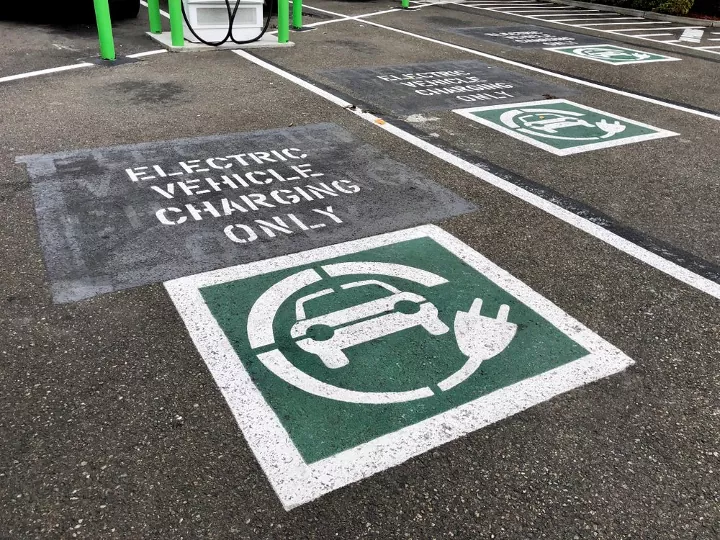















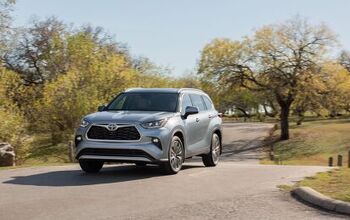









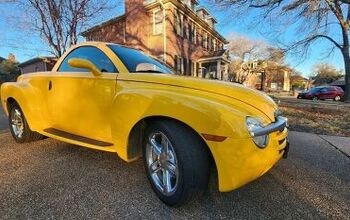
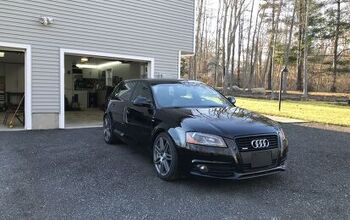
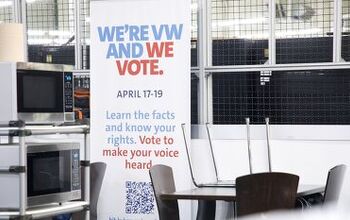

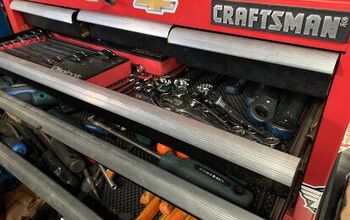
Comments
Join the conversation
California is the ideal state to be a criminal. You can commit brazen robberies multiple times a day. Just keep it below the democrat approved dollar amount and no worries. Carb is just shoplifting on a grand scale. P.S. remember when Oakland was sketchy and San Fran was ritzy? Been there lately? It's almost like San Fran said "hey, how can we be more like the other side of the bay, they get all the best homeless"
If Jesus were alive today, the white Christian nationalists on this site would stone him for blasphemy within 30 seconds.